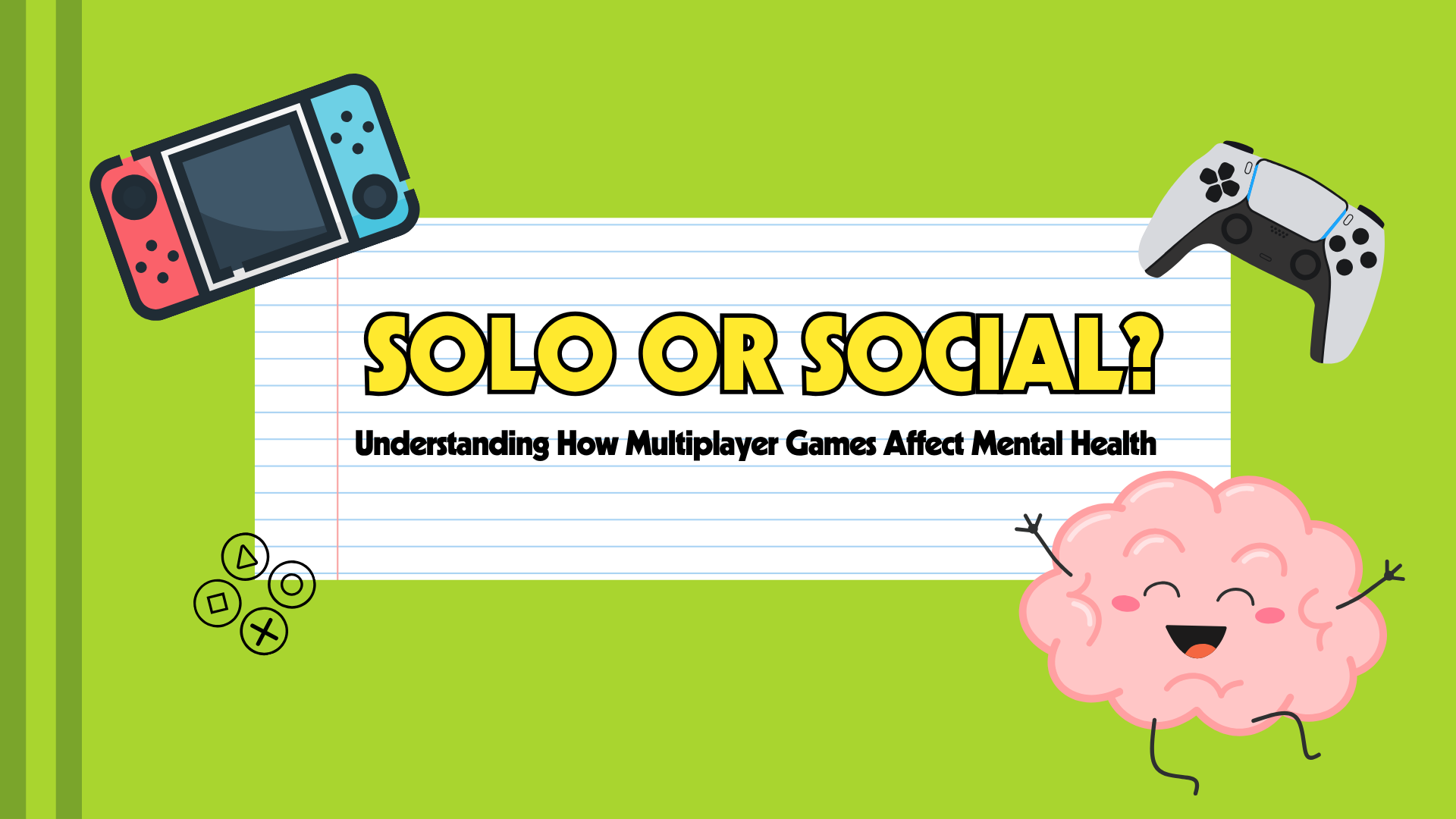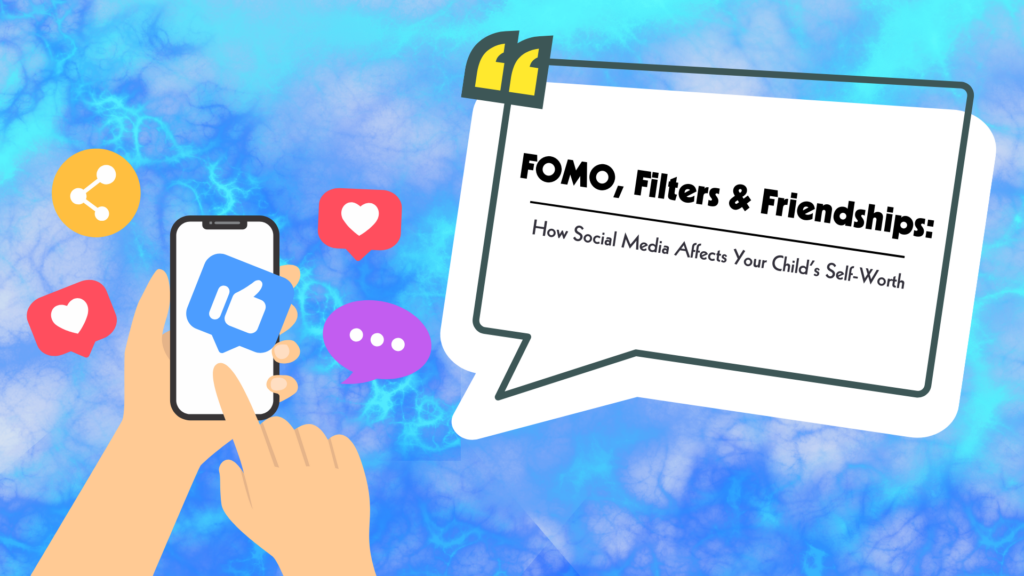How Social Media Affects Kids’ Self-Esteem: What Parents Need to Know
Discover how social media affects kids’ self-esteem and learn practical tips to help your child build confidence in a digital world.
Not ready to Book? We can remind you when your event is a little closer.
Set a Reminder
Video games have become a big part of many kids’ lives. They provide fun, adventure, and even a way to stay connected with friends. But not all gaming is the same—and how it affects your child depends a lot on how they play. Understanding the difference between solo and multiplayer games can help parents better support their child’s emotional well-being and gain a clearer picture of video games and kids mental health.
When kids play video games alone, it can actually be a good thing—at least in moderation.
Some solo games are calming and help kids unwind after a tough day. Just like adults might read a book or go for a walk, kids can use quiet gaming time to relax.
Many single-player games ask kids to solve puzzles, make smart choices, or think ahead. These types of games can improve focus, patience, and problem-solving skills.
But playing solo for too long can have downsides, too.
If a child spends too much time gaming alone, they may miss out on real-life social time with friends and family. Over time, this can make them feel lonely or disconnected.
Without interaction, solo gaming might not boost a child’s mood the way a social activity would. This is especially true if gaming replaces time that would otherwise be spent being active or talking with others.
In fact, a study in the Journal of Youth and Adolescence found that while some gaming can be helpful, excessive solo play was linked to more loneliness and less life satisfaction. This shows how important it is to understand how video games affect kids' emotions, especially when they play alone.
Cooperative games are video games that kids play together, either online or in person. Instead of competing against each other, players team up to reach a shared goal. These games offer more than just fun—they can also support important life skills and mental health.
One of the biggest benefits of co-op games is how they help kids connect with others. To succeed, players need to talk, listen, and work together. This kind of teamwork helps kids build communication skills and learn to see things from someone else’s point of view. Over time, these experiences can strengthen friendships and improve how kids relate to others.
Another benefit is emotional regulation. Playing as a team means facing challenges and sometimes losing. But with friends around, kids can talk through frustration and learn to bounce back. Celebrating a win together or pushing through a tough level teaches patience, flexibility, and resilience.
When kids help their team win or solve a difficult puzzle, they feel proud of what they’ve done. Getting support and encouragement from teammates builds confidence and reminds them they’re valuable. These positive experiences can raise self-esteem and make kids more willing to try new things.
Some co-op games are even used in therapy. These specially designed games give kids a safe space to express feelings, practice coping strategies, and build social skills. For children dealing with anxiety, depression, or ADHD, co-op games can be a creative and helpful tool in their mental health journey.
While co-op games have many upsides, there are also some things to watch out for. One of the biggest concerns is how easy it can be to play for too long.
Because cooperative games are exciting and social, kids may want to keep playing for hours. This can sometimes lead to gaming addiction. When gaming takes over other parts of life—like sleep, school, or time with family—kids may start to feel isolated or stressed. It can also affect their grades or energy levels during the day.
The good news? With a few smart habits, gaming can be a fun and healthy part of your child’s life.
By staying informed and involved, parents can help their children reap the benefits of gaming.
So, are video games bad for kids’ mental health? Not necessarily. Both solo and multiplayer games can offer real benefits—if used in healthy ways. By understanding the relationship between video games and kids mental health, parents can guide their children toward habits that support emotional growth, social connection, and confidence. With the right balance, gaming can be more than just a pastime—it can be a positive part of growing up.

Discover how social media affects kids’ self-esteem and learn practical tips to help your child build confidence in a digital world.
Categories
Our latest tips, insights, and news on parenting, family, and gaming.
Discover how social media affects kids’ self-esteem and learn practical tips to help your child build confidence in a digital world.
Discover 6 easy and affordable DIY Mother's Day Gifts for Kids that parents, teachers, and leaders can make with little ones they love!
Keep kids active and smiling with Easter games for kids! Try fun ideas like egg hunts, silly races, and hands-on holiday challenges.